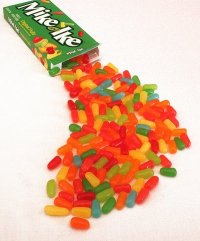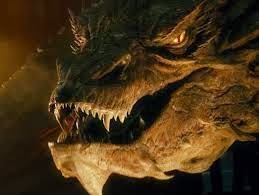Lead Actors: Leon Walker, Brittany, Nikki Leigh, Tiny Lister
Producer: George Akopyan
Plot Synopsis: We meet Leon Taylor on "Contract Day" - when he finds out that his professional football contract as a running back for a non-descript team has been extended for another four years and a whopping $25 million.
As evidenced by Taylor's many spirited celebration dances - this is BIG!
The contract extension means many things: one, that Leon can keep his house in an upper class subdivision. And two, that he can celebrate with the people who matter the most in his life, his wife, his uncle-played beautifully by Tiny Lister of "Friday" fame- and his "boys" at the barber shop - a group of about five or six twenty somethings who were probably friends with Leon growing up.
It also means that those around him who are needy, a.k.a his parent in-laws, and a reality show producer, will literally be knocking on and down his door to get things from him. This, along with the temptations that come with money and power make Jay Z's saying, "mo money mo problems", which he borrowed from Notorious B.I.G., all the more fitting for this young athlete.
Who Would Like It and Why
Young African American Men
I attended the premiere of Episode 1 of this pilot, and I felt that it was made for and by young African American men. The main character is a dominant black male in the height of his powers and fame and earning potential. The world around him is literally eating from his hand.
There are four women in the premiere episode, all of them attractive, and all them are light skinned. They all yearn for Leon sexually and celebrate joyously when he takes off his shirt and shows what he calls "the magic", or his finally toned professional-athlete torso.
Who Might not Like it and Why
White People
Unfortunately, some good comic timing, and some decent acting was blotted out for me by the biased and border-line racist depictions of white people in this script:
1)There was Leon's neighbor, a hopelessly nerdy guy who admits that he is cheating on his (stunningly hot) wife on a regular basis.
2) Then there are the two dopey guys who are on the reality show crew that has invaded Leon's life and home. One is fat and doughy, the other is meek and skinny. In one scene they stand there in awe of Leon with his shirt off, not sure of what to say. In another, they simply invade his refrigerator. "This thing is bigger than my house," says the fat one, who then gets his hand stuck in the refrigerator right when Leon comes in and confronts him. He is ashamed and has nothing to say as Leon lambastes him.
3) Also, Leon's barber seems white, although his beard covers a lot of his face. He also seems dopey and lives, frothy-eyed and mouthed and vicariously through Leon's potential sexual exploits with beautiful women.
4) Leon's mother-in-law is white, and a complete wreck. We realize that she, along with her husband, are bankrupt, and that they need to move in with Leon. Which is fine with her, because she loves seeing Leon with his shirt off. (Have we established a theme yet?)
Then, there is the memorably hot next door neighbor Amber, whose husband is so rich, she has nothing else to do but work out. This is demonstrated in full detail by her sports bra/spandex jogging get-up, that shows off her negative-one body fat percentage.
In one indulgent scene she washes herself and her car for with copious amounts of soapy water for Leon's benefit, and that of the viewing audience. I think it was then that I actually saw her liver and spleen.
This is the cast of proud white characters that the makers of this show have created. I am white, and thirty five years old, and I have never met people like the ones depicted in this show. This tells me that they were shallow caricatures drawn up by writers and directors who don't fully understand white people.
I would like to make a comparison here to the Academy Awards 2104 Best Picture Winner "12 Years A Slave", which managed to depict the most evil and shameful period in modern history for white people, without as many terrible stereotypes. The characters in "12 Years a Slave" were fully developed and believable, even Michael Fassbender's character, who raped and whipped his slaves on a daily basis.
I think the culprit for Taylor'd Problems, more than racism, is lazy writing. These white characters should have been more fully developed, period.
Highlights/Top Scenes
Any scene with Tiny Lister is really good.
He delivers with conviction. He is very funny. Leon Walker did a great job, his comedy is very physical and raw, and he was full of energy.
Also, Jennifer Irene, I think it was, was fun as the reality show producer. She is also very attractive.
She looked a lot like a brunette Jennifer Mccarthy. Overall, there is a strong cast, and a lot to work with in this "fish out of water" new money tale of a successful young athlete. The possibilities are endless.
She looked a lot like a brunette Jennifer Mccarthy. Overall, there is a strong cast, and a lot to work with in this "fish out of water" new money tale of a successful young athlete. The possibilities are endless.
But, I think the creators of this potential series need to check their urge to aggrandize black people and belittle white people before they can be successful and get picked up by a major network.
Two Mike and Ikes.












